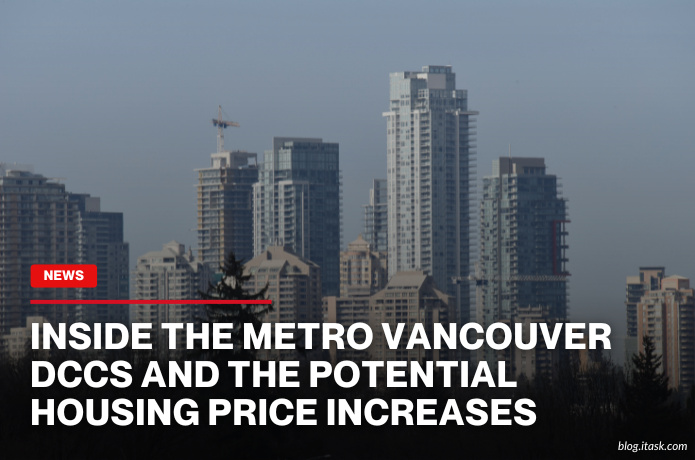Inside The Metro Vancouver DCCs And The Potential Housing Price Increases
Inside The Metro Vancouver DCCs And The Potential Housing Price Increases

Metro Vancouver’s plan to increase Development Cost Charges (DCCs) has sparked concerns about housing affordability. DCCs are fees collected from developers to fund critical infrastructure projects, such as wastewater treatment plants and other public services. While necessary for managing the region’s growing population, these increases could lead to higher costs for homebuyers and renters, with housing price hikes estimated between 1% to 3%.
Developers have expressed worries about the financial pressures these charges create. Combined with soaring construction costs and challenging economic conditions, higher DCCs could discourage new housing projects. Analysts suggest that many rental and strata developments might become less viable, further tightening the housing market.
The challenge of land acquisition adds another layer to the issue. Developers argue that shrinking budgets and resistance from landowners could limit new housing projects, leading to reduced supply and worsening affordability concerns. Metro Vancouver officials, however, stress that DCCs are crucial to supporting infrastructure demands driven by population growth.
The new DCC rates are set to be phased in from 2025 through 2027, providing some time for the industry to adjust. However, developers are advocating for alternative solutions, such as collecting DCCs at later stages of development, to ease immediate financial strain.
This debate highlights the broader struggle to balance housing affordability with infrastructure investment. Developers worry that rising fees and operational costs will stifle innovation and supply, while officials emphasize the long-term benefits of robust public infrastructure.
Finding common ground will be essential as both sides work to ensure Metro Vancouver can meet its housing and infrastructure needs without overburdening developers or residents. The outcome of these discussions will shape the region’s housing landscape for years to come.
